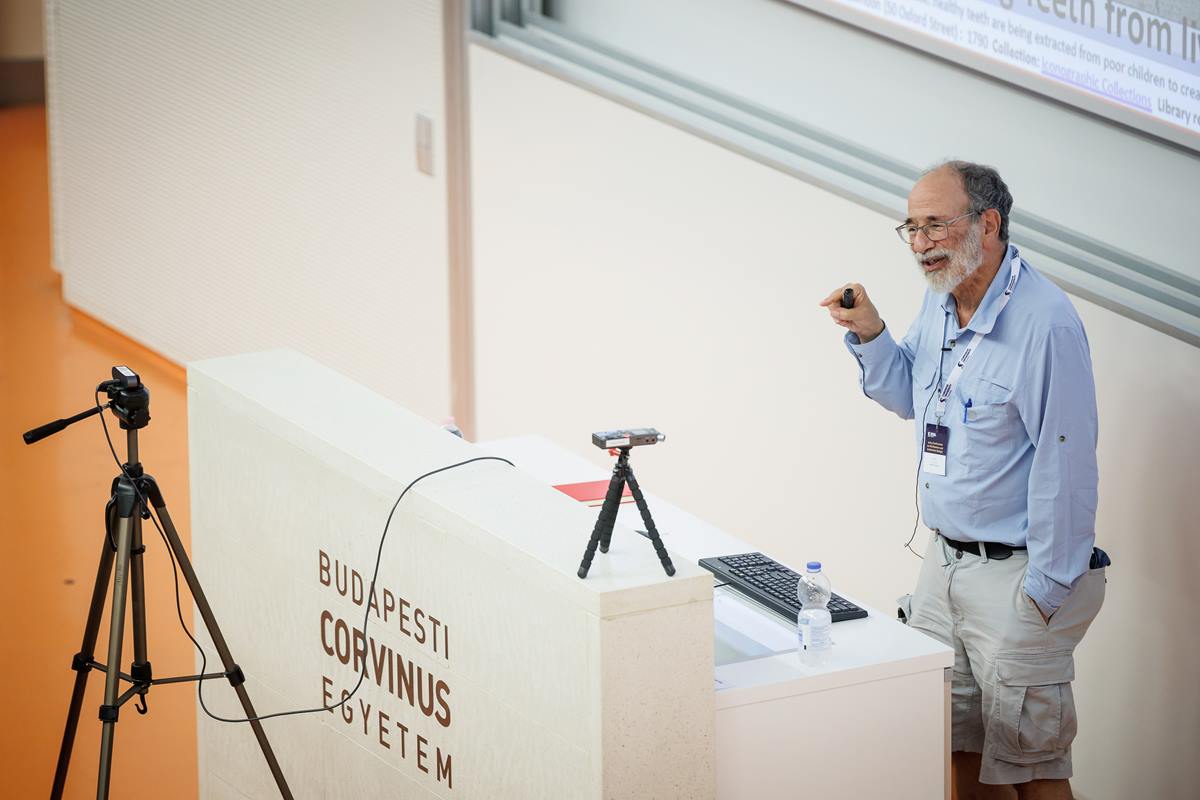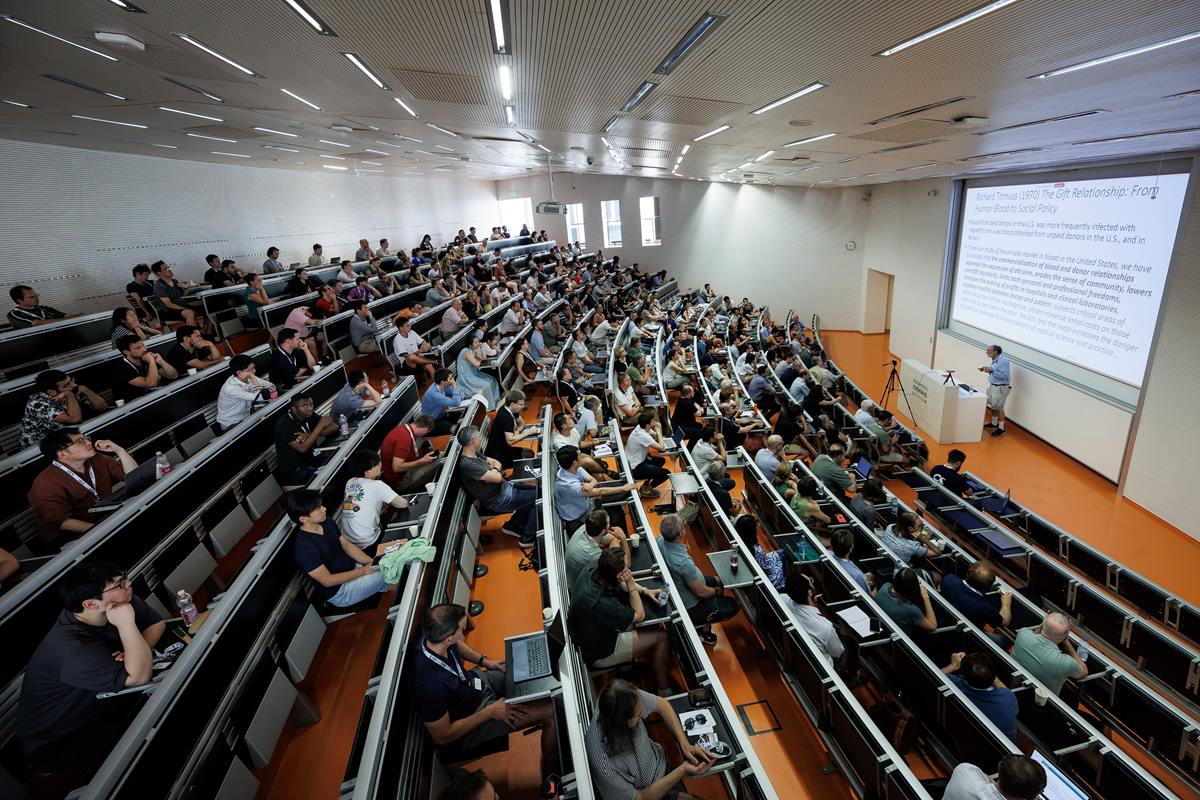“Repugnance in human transactions became interesting to me” – interview with Alvin Roth
Alvin Roth, a pioneer American economist of market design and Nobel Prize winner of Economic Sciences, has been working lately with Corvinus researcher Bíró Péter on kidney exchange theories. The Stanford professor participated in the CMID-2024 conference at Corvinus in early July and told us, among other things, why his academic interest has recently turned to ethical issues in market design.
Alvin Roth interview
Your research has a lot of practical applications in our lives, like school applications or matching kidney donors and recipients. Are you driven as an economist by these questions by applying your theories to real life?
Alvin Roth: Well, economics is about real life. Economists are social scientists. We’re interested in how human beings coordinate with each other, cooperate, and compete. So even when we’re writing mathematical papers, we have at least in the back of our minds how it applies to the way people live their lives. And of course, market design is an engineering part of economics, we try to not just think about how we live our lives, but help build institutions that do what we want them to do.
The phenomenon of why human societies find certain transactions repugnant has long been a matter of scientific interest. In your lecture at the conference at Corvinus University, you examined two issues in more detail, randomized field experiments in the Econ job market, and kidney transplantation. Could you briefly summarize the results of your recent research on these two topics?
Alvin Roth: People usually have strong opinions based on little evidence about things they find repugnant. As an economist, I think that we should have good evidence when we make our decisions. And one way of that is to do experiments. But if you want to understand causality, you often need to have some randomness in your experiments. So it’s especially interesting to me that one of the things that sometimes people object to is randomizing treatments in experiments. There’s a natural feeling that it is unfair to treat some people one way and other people another way just because of randomization. In my opinion, experiments are one of the most useful tools for finding out why things happen. However, one reason we don’t see as many experiments as we should have is that people sometimes find experiments repugnant.

Transactions people find repugnant and express their moral or ethical concerns about, are very controversial. For instance, the European Parliament has just issued a statement that says they don’t think that donors of blood plasma should be paid. They think that countries should get all their blood plasma from unpaid donors. Now, Hungary is one of the places where blood plasma donors can be paid. And Hungary doesn’t have to import any blood plasma. They have enough domestically. But there are only five countries in the EU that have enough and they all pay plasma donors. The European countries that don’t pay plasma donors import plasma from the US, which exports plasma products because plasma donors can be paid in the US. So sometimes people’s feelings are contradictory. They would like that no one should be paid for plasma, but that there should be enough plasma. Those things don’t fit well together. And with kidneys, one of the big constraints we have is that it’s against the law just about everywhere in the world to pay a donor for a kidney. Corvinus researcher Bíró Peter is one of the leaders in working on kidney exchange theories about how you can get more transplants without paying donors.
Why has your academic interest recently turned to ethical issues in market design?
Alvin Roth: Sometimes the objections or the constraints on market designs are affected by ethical issues. For instance, we wouldn’t like a world where only rich people could get kidney transplants. When we talk about school choice, there have been questions in some of the cities about whether you can trade your priorities. So in most of the school districts I’ve worked with, if you want to put a child into a school and you already have a child who goes to that school, you get high priority. We tend to feel that parents should be able to drop their children off at school together. But some places allow people who don’t want their younger child to go to the same school as the older child to trade their priority to someone else. The question is, should we trade those? Some people thought that was like trading our children and you shouldn’t trade children. But we were able to convince them that it’s just about trying to find the right schools for children. So sometimes ethical intuitions can mislead us. We can do something better for the children by thinking through carefully and realizing that we’re not trading our children, we’re just trading their priorities.

You have been writing the blog Market Design since 2008, and since then you have written almost every day a post. What motivated you to start this blog and what role does it play in your professional life?
Alvin Roth: I started it for my class. I wanted the students to know that the way to think of ideas for market design is not just to read papers in economics journals but to read the newspaper and follow why markets weren’t working well. Many of my blog posts are short comments on a newspaper about something in the world. Since I started, it’s also proved to be a useful tool for me to remember things. So, it’s a kind of intellectual diary, as well. I’m currently working on a book on controversial markets and I look at my blog posts for each chapter. Market Design blog is my memory for everything related to market design.
read more:
- Diplomatic insights: Pakistan’s Ambassador discusses trade, education, and bilateral relations between Pakistan and Hungary – read the interview HERE
- Interview with Cynthia Mayer, Ambassador of Ecuador in Hungary on economic relations, Ecuadorian products in Hungary, politics, and more – read here







